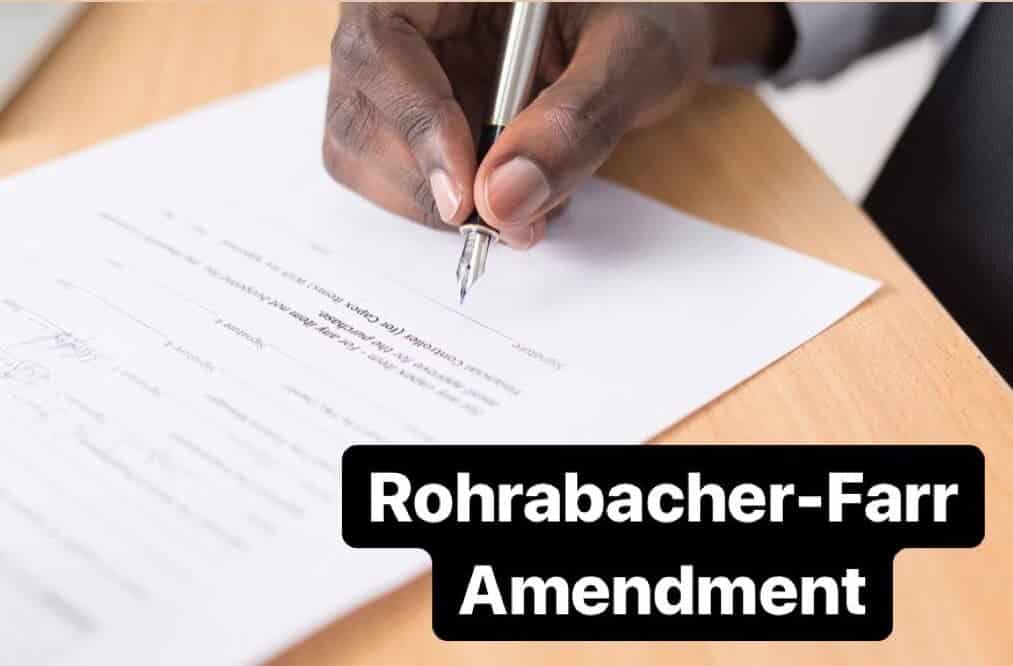Rohrabacher-Farr Amendment Signed Into law


Rohrabacher-Farr Amendment signed by President Barack Obama
Rohrabacher-Farr Amendment
The Rohrabacher-Farr Amendment is a provision in U.S. law that prohibits the U.S. Department of Justice from spending funds to interfere with the implementation of state medical marijuana laws.
Rohrabacher-Farr Amendment History
The Rohrabacher-Farr Amendment was first introduced in 2001 by U.S. Representative Dana Rohrabacher (R-CA) and U.S. Representative Barney Frank (D-MA). The amendment was included in the Consolidated Appropriations Act of 2014, which was signed into law by President Barack Obama on December 16, 2014.
Rohrabacher-Farr Amendment Provisions
The Rohrabacher-Farr Amendment prohibits the U.S. Department of Justice from using funds to:
- Prevent states from implementing their own medical marijuana laws.
- Prosecute individuals for possessing or using medical marijuana in compliance with state law.
- Raid or seize property from individuals or businesses that are operating in compliance with state medical marijuana laws.
Rohrabacher-Farr Amendment Impact
The Rohrabacher-Farr Amendment has had a significant impact on the legalization of marijuana in the United States. The amendment has allowed states to implement medical marijuana programs without fear of federal interference. The amendment has also made it more difficult for the federal government to crack down on recreational marijuana use in states where it is legal.
Rohrabacher-Farr Amendment Future
The future of the Rohrabacher-Farr Amendment is uncertain. The amendment is not a permanent law and must be renewed every year. There is also a possibility that the amendment could be repealed by Congress or challenged in court. However, the amendment has been in effect for over eight years and has not been repealed or challenged. This suggests that the amendment is likely to remain in effect for the foreseeable future.

